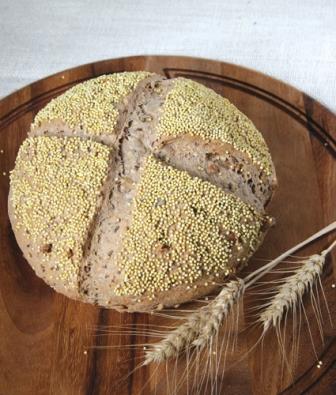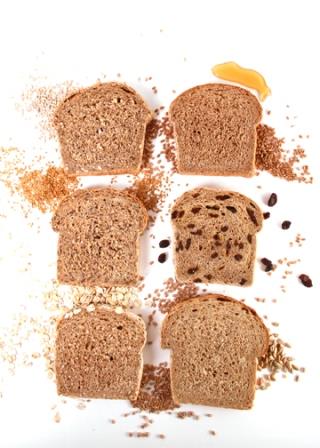In my last post I shared 5 facts to help set the facts straight about wheat. To continue the discussion this week, here are 5 more grains of truth:
6. Any food in excess will lead to weight gain and disease. A specific food will not typically lead to weight loss or weight gain any more than any other food if you eat too much of that food. It’s all about moderation and balance. 
7. Gluten is only a health concern for those with celiac disease. There is no evidence suggesting gluten is toxic to those without celiac disease (a disorder that can be diagnosed with biological markers.)
8. The risk and or severity of many chronic diseases including heart disease can be drastically improved with weight loss, but there is no evidence to suggest this occurs specifically with the removal of wheat from the diet. The removal of any large staple of food is likely to result in calorie reduction and weight loss. In fact, studies indicate that a large percentage of those who are overweight or obese upon diagnosis of celiac disease may gain weight when switching to a gluten free diet. 
9. Wheat consumption as part of a balanced diet does not lead to nutrient deficiencies from malabsorption unless one has celiac disease. It is true that wheat and cereal grains contain phytic acid which can inhibit mineral absorption, but wheat is absolutely not the only food that has a nutrient like this. Certain vegetables, spinach, legumes, chocolate, nuts, seeds (including flax), and even coffee and tea also contain phytonutrients that seem to impair mineral absorption due to their oxalate, tannin and phytic acid content. Many different foods also provide nutrients that compete for absorption which is why it is important to vary intake of foods throughout the day. Phytic acid has also been linked to improved heart health, cancer prevention and normalizing blood sugars.
10. It takes careful planning to consume a healthy gluten free diet. There is evidence that a reduction in wheat intake will reduce the intake of oligofructose and inulin which has been linked to a reduction in the healthy gut bacteria that promotes intestinal and immune health, and can potentially even reduce the risk of cancer, cardiovascular disease, and inflammatory disease. Gluten containing grains are also one of the main sources of folate in the American diet. Gluten free diets are linked to reduced folate intake–a vitamin that is important for women of child bearing age as it greatly reduces the risk of neural tube defects in infants. Be sure to find other sources of oligofructose, inulin and folate if you are eating gluten-free.
Works Cited:
Anwar M, Vatanparast H, Barlas S, Dehghan M, Shah S, Koning L, Steck S. Carbohydrate Intake and Overweight and Obesity among Healthy Adults. J Am Diet Assoc. 2009; 109:1165-1172.
Gaessaer, G.A., Angadi, S.S. Gluten Free Diet: Imprudent Dietary Advice for the General Population? Acad. Nutr. and Dietetics. 2012. 112: 1330-1333.
Wheat Improvement: The Truth Unveiled. The National Wheat Improvement Committee.Accessed March 2013. http://wheat.pw.usda.gov/ggpages/Wheat__Improvement-Myth_Versus_FactFINAL.pdf
Jones, J. Wheat Belly—An Analysis of Selected Statements and Basic Theses from the Book. Cereal Foods World. 2012. 57: 177-189.




